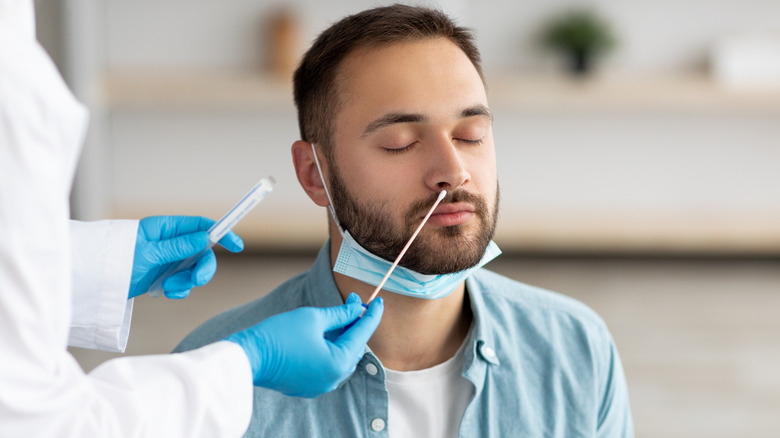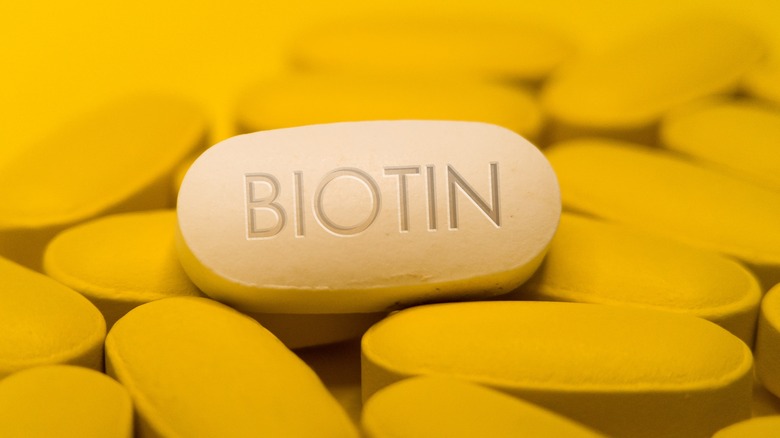Can Biotin Supplements Throw Off COVID Test Results?
While at-home testing for the COVID-19 virus is a common occurrence, there is a rumor that a commonplace supplement may affect test results. According to the Centers for Disease Control and Prevention (CDC), COVID self-tests can be purchased online or in retail stores or pharmacies, can be done anywhere, and can detect whether you are currently infected within minutes. These are all positives when trying to control the spread of the virus and protect yourself from it. But what if the easily accessible results of the tests are being affected by something unrelated?
In 2017, the U.S. Food & Drug Administration (FDA) warned the public that biotin could interfere with some lab tests and cause misleading results. They advised the importance of knowing about this possible interference, as it may otherwise go unnoticed. The FDA's industry guidance advises that consumers should also be warned through labeling on testing devices. But does biotin's interference extend to COVID-19 testing?
Biotin technology may affect test results
Biotin is also known as vitamin B7 and is found in many of the foods we eat (per MedlinePlus). A biotin deficiency can cause thinning hair and skin rash, and it is often taken orally as a supplement. The recommended daily allowance for biotin is between 30 to 100 micrograms, reports Healthline. Though biotin supplements are touted for improving hair growth and quality, there isn't sufficient evidence that taking increased amounts will have the desired effect, although many use it regardless.
Biotin technology is used in many lab tests because biotin can bond with certain proteins, allowing health providers to measure and detect various health conditions (via USA Today). These tests can be theoretically affected by increased levels of biotin from supplementation and provide false testing results. According to the Mayo Clinic, most approved tests for determining COVID infection use nasal or saliva swabs. In an interview with SHAPE, Dr. Michael Daignault, chief medical advisor at Reliant Health Services, stated, "It's unlikely that there's sufficient biotin in the nose and mouth (if any at all) to alter either a rapid antigen or PCR test." He continued, "If you want to err on the side of caution, though, my advice for those who take high amounts of biotin is to simply avoid rapid antigen tests that include biotin technology."


